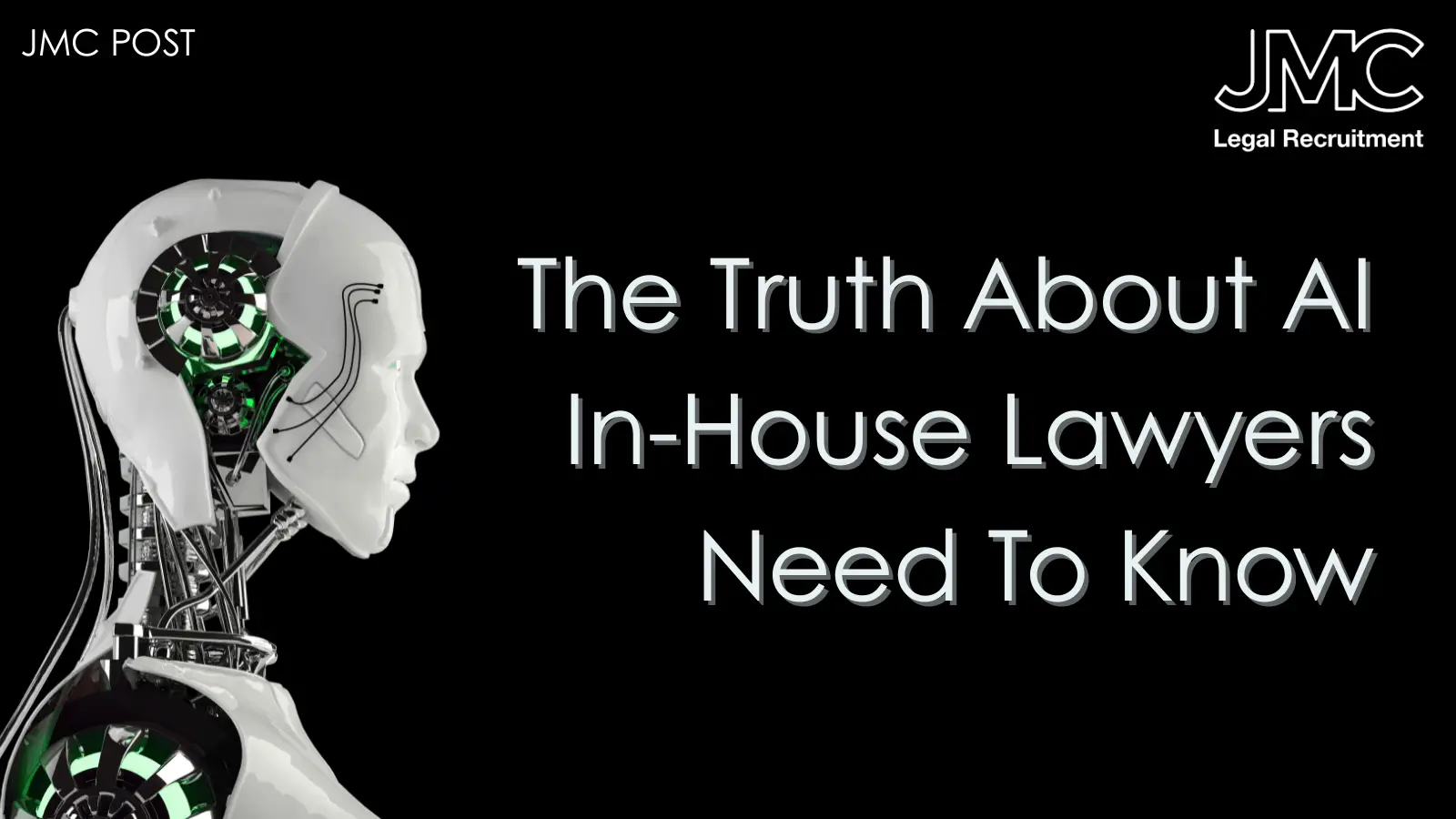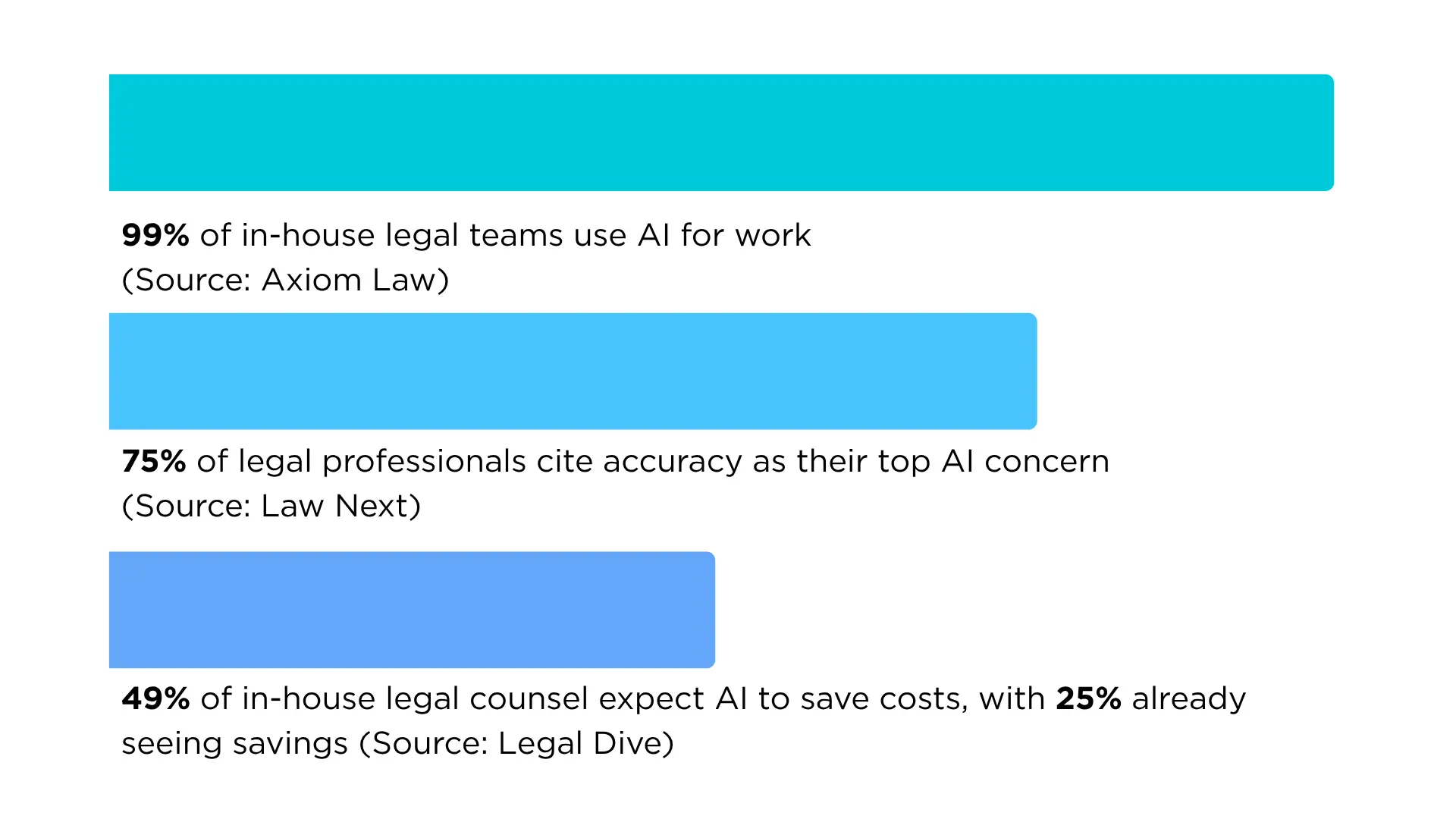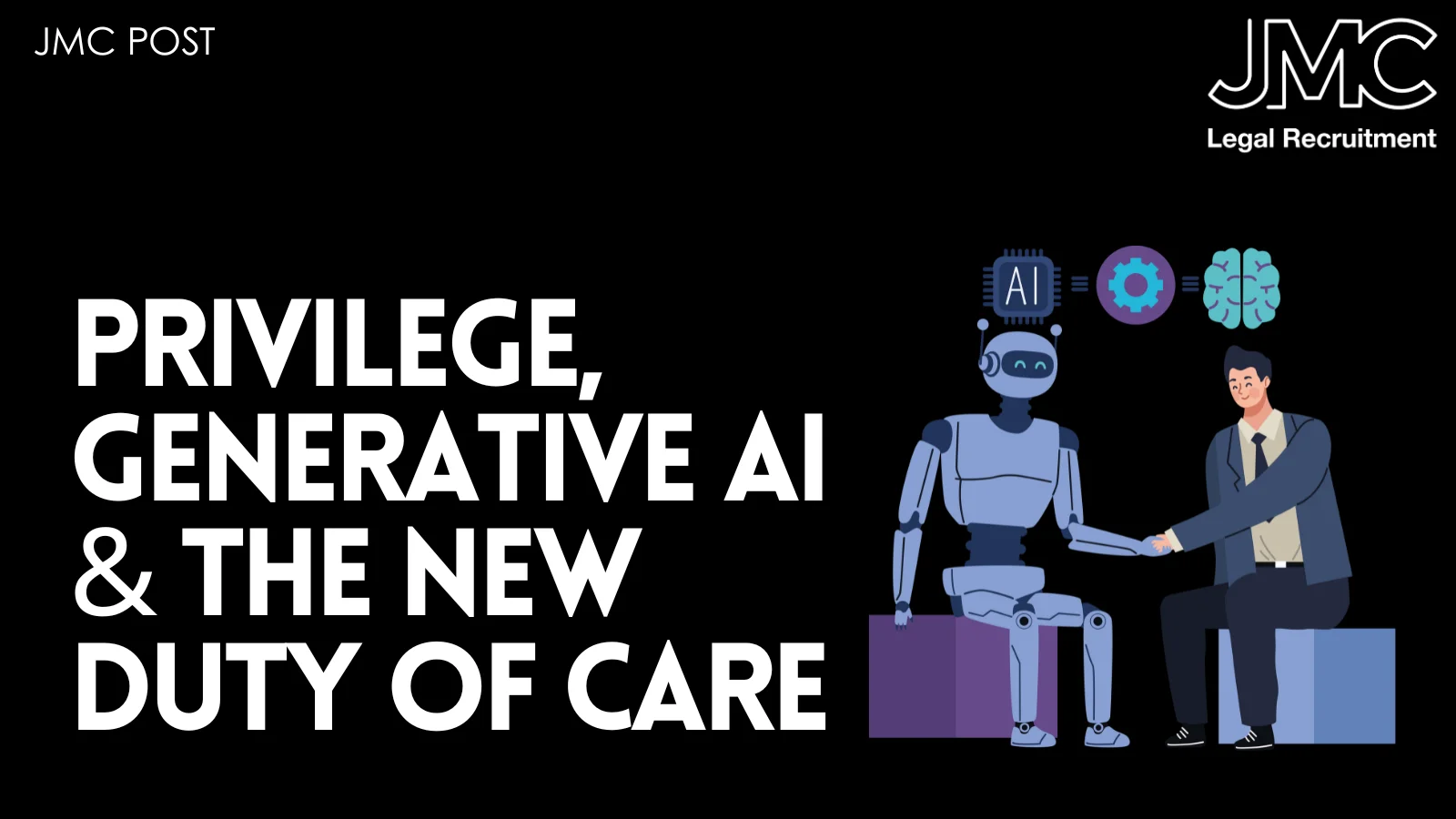The Truth About AI In-House Lawyers Need To Know
21 Jul, 20256 minutes
The Truth About AI In-House Lawyers Need To Know
In-House Legal Opportunities and Risks from Artificial Intelligence
Artificial intelligence is revolutionising in-house legal jobs and the way teams operate. It’s cutting costs, boosting efficiency, and automating routine tasks. Sounds great, right? But is AI as transformative as it’s made out to be? As businesses race to capitalise on AI’s benefits, how can you stay ahead and make sure it’s working for you and your team? Let’s take a look at how AI is shaking things up and what in-house lawyers need to know.
How AI is Transforming In-House Law Now
Artificial Intelligence is already a key player in the day-to-day life of in-house legal counsel, helping them tackle those tedious tasks like contract management and document review (tasks most of us aren’t a fan of anyway). In fact, many in-house lawyers have already made the jump, adopting AI tools to streamline workflows and increase efficiency.
Deloitte highlights that generative AI tools are helping in-house law departments reduce their reliance on expensive external counsel, saving money and keeping more work in-house.
Predictive analytics are helping legal teams make smarter decisions by forecasting case outcomes, while AI-powered document systems are speeding up processes and improving accuracy. Although efficient, these tools also raise important questions about the quality and oversight of legal work that’s being automated.
The Risks: Is AI a Friend or Foe?
While Artificial Intelligence is certainly driving efficiency and saving costs, let’s be real – there are risks that come with the territory. AI makes mistakes. Some of them are glaring errors and others are subtle but big enough to be costly if they’re not picked up. And as in-house lawyers, you need to stay on top of them. The most pressing concerns revolve around quality control, job displacement, and the potential loss of human judgement in the decision-making process. Let’s take a look at each one:
- Quality Control and Accuracy
Legal work often requires nuance, and AI can sometimes miss the subtleties in case law, jurisdictional issues, or precedents that an experienced in-house lawyer would spot. While AI speeds up routine tasks, it lacks the critical thinking and judgment of human lawyers, which could lead to errors or oversights in complex matters. - Job Displacement
AI is stepping in to handle the routine tasks, which means junior roles could be at risk. For General Counsels, the challenge isn’t just about managing the shift to more strategic roles, it’s also about making sure AI doesn’t mess with your team’s quality. - Data Security and Ethical Concerns
In-house lawyers handle sensitive data – client communications, financial records, and confidential documents. As Artificial Intelligence takes over tasks, it gains access to this data, raising serious security concerns. Privacy and confidentiality are crucial, and AI systems can inherit biases from training data too, which leads to ethical issues, especially in predictive analytics or automated legal decisions.
Why Addressing the Risks is Crucial
Recognising these risks doesn’t mean we should reject AI altogether. While the risks are significant, they can be mitigated with the right approach. It’s all about finding the right balance. That means understanding the limits of AI, putting safeguards in place, and helping legal teams skill up to make the most of AI technology. The key lies in leveraging AI for its benefits while ensuring it doesn't compromise the human touch or the quality of legal work.
Unlocking In-House Legal Opportunities: Become a Legal Team Powerhouse
Now that we’ve covered the risks, let’s turn to how AI can help in-house lawyers not just survive, but thrive. When used the right way, Artificial Intelligence isn’t just a timesaver, it can supercharge productivity, make decision-making a breeze, and free up your time for the work that really drives business forward. And here’s how you can stay ahead by leveraging AI’s potential:
- Increased Efficiency and Cost Savings
Artificial Intelligence automates those boring, routine tasks, so in-house counsel can focus on the high-impact work that really makes a difference, while saving time and money along the way. Example: Tools like Kira Systems and ROSS Intelligence streamline contract review and research, saving in-house teams significant time. - Better Decision-Making with Predictive Analytics
AI tools can analyse vast amounts of data to predict legal outcomes, helping legal teams make smarter, more confident decisions.Example: Premonition uses AI and big data to analyse court trends, helping in-house counsel refine litigation strategy and choose the best legal representation based on historical data.
- Streamlining Legal Research and Contract Management
AI accelerates the research process and simplifies contract management by automating reviews and flagging key clauses.
Example: Casetext's CoCounsel is an AI-driven research tool that helps in-house teams quickly search through vast legal databases, with users reporting up to 50% of time savings on research tasks. - Empowering Legal Teams to Focus on Strategy
By automating repetitive tasks, AI allows in-house lawyers to focus on high-impact, strategic activities that drive business growth.Example: Ironclad automates contract workflows, enabling legal teams to concentrate on negotiations and strategic partnerships, improving the overall effectiveness of in-house legal departments.
- Improved Compliance and Risk Management
By monitoring compliance, predicting risks, and alerting teams to potential issues before they arise, AI is giving in-house counsel the tools to stay ahead of the curve.
Example: Thomson Reuters' Legal Tracker uses AI to help in-house lawyers monitor compliance and manage risks, flagging potential violations early and offering a proactive approach to reducing legal risks.
The Future of AI for In-House Law
Many companies are investing in AI but feel it hasn't yet reached its full potential. As AI keeps evolving, the big question is, what’s next? Will it start making the legal decisions we’ve always trusted humans to handle, or will it remain focused on being a handy assistant taking the grunt work off our plates?
Recent figures show that 65% of law firms believe that, in the next five years, effective use of generative AI will be the key differentiator between successful and unsuccessful firms. In-house legal counsel must think the same way. As AI becomes more integrated into business operations, in-house counsel should ask: “How can AI transform the way I work?” Will AI play a central role in strategic decision-making, or will it remain a tool for efficiency?
One thing is clear – those who embrace AI’s potential will be the ones leading the way in an increasingly competitive legal landscape.
As the legal tech expert Richard Susskind put it:
“The most exciting possibilities lie not in swapping machines and lawyers, but in using AI to deliver client outcomes in entirely new ways.”
Ready to build a tech-savvy, AI-driven in-house team?
Drop Sam Thompson a message at sam@jmc-legal.com or call him on 0203 865 2113. He’s here at JMC Legal Recruitment to help you find the right in-house legal fit.
Related Articles:
[Challenges When Hiring In-House Legal Counsel]
[A Guide for Startups Looking to Make Their First In-House Counsel Hire]




